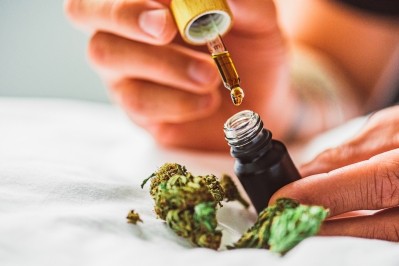FloraWorks advances research into cannabinol use for sleep

The research appeared in Pharmaceuticals and was funded by biotech firm FloraWorks, which discovers rare and novel cannabinoids for commercial and therapeutic applications. The study tested FloraWorks’ TruCBN brand and is the largest double blind, randomized, placebo-controlled clinical trial conducted on a single cannabinoid, the company said.
“I've been in the cannabis space for 14 years now from a recreational cannabis side,” said FloraWorks CEO Alleh Lindquist. “Not only have people talked about all the different health benefits they're getting from CBN, but I've also seen a lot of companies making claims about it without them being substantiated. I approached this research as a skeptic at first. So, it was just exciting to see that we did have that [evidence].”
FloraWorks started selling CBN in 2020 and was the first to bring it to market, Lindquist said.
“We're just kind of in this now emerging phase where these minor cannabinoids, rare cannabinoids are being isolated, and we can start studying them more efficiently,” he added.
CBN, like cannabidiol (CBD), is a natural chemical found in the cannabis plant. When parts of THC in the plant ages and breaks down, this creates the less potent cannabinoid CBN. Whereas CBD is non-psychoactive, CBN only causes a psychotropic response in extremely large doses.
This recent study, which was independently conducted by clinical research and health technology company Radicle Science, found that at a 50 mg dose of TruCBN outperformed a standard dose of melatonin to promote better sleep and that there were no significant side effects.
Dr. Emily K. Pauli, the study's principal investigator and chief research officer at Radicle Science, said in a statement that the study represents a significant advancement in sleep science.
“Our findings suggest that TruCBN can effectively enhance sleep quality, providing a natural and safe alternative for those struggling with sleep disturbances and, importantly, an effective alternative to melatonin," she said.
According to the CDC, one in three Americans are plagued with sleep issues while the global sleep aid market is projected to surpass $130 billion by 2032.
Making a clinical claim
CBN is among the family of cannabinoids that have various effects on the human body by interacting with the endocannabinoid system (ECS). Among the roles of the ECS, is the potential regulation of the circadian sleep/wake cycle, suggesting that cannabinoids are involved in modulating sleep and its impact on stress and anxiety.
Before 2018, cannabinoids were scheduled compounds, which complicated research and access. When the 2018 Farm Bill legalized the industrial use of hemp, it provided a legal pathway for all hemp derivatives, Lindquist said. Like the cannabis plant, there are more than 120 cannabinoid compounds in hemp, including CBN. Depending on the amount of degradation of the THC, CBN is typically found in 1% or less of the plant.
Given anecdotal evidence that CBN might induce sleep, FloraWorks set out to investigate whether it could hold its own against melatonin to support a valid clinical claim. The FDA has only approved CBD use in Epidiolex, a drug that treats seizures in two severe forms of epilepsy.
The FloraWorks CBN study included 1,020 participants who consumed either a 25 mg, 50 mg or 100 mg dose of TruCBN for four weeks.
The researchers reported only a marginally significant difference in effect on sleep for both the 25 mg and 100 mg doses compared to placebo, but the 50 mg dose seemed to be the most efficacious. All data were collected through online surveys.
FloraWorks is not the first company to produce a CBN study. Research by CBD supplement brand Charlotte’s Web published earlier this year included 321 participants who took 20 mg of CBN for seven days and demonstrated improvement of some sleep difficulties, such as nighttime awakenings and overall sleep disturbance.
Moving forward
As for future research, FloraWorks would like to explore the effects of TruCBN on insomnia, possibly pushing the company toward solutions for the disorder.
“This falls more into the treatment of a disease, a much more advanced level of research, as well as going down the FDA drug path,” Lindquist said.
Currently, FloraWorks is partnering with Oregon Health and Science University to examine the effect of TruCBN on sleep, monitoring REM sleep cycles and deep sleep, topics the research team did not explore in the current study.
“We’re basically taking what we've learned and building from that and keep going deeper to try to understand what it is about the mechanism of CBN, how it's working more specifically,” Lindquist said. “We have a lot of research ahead of us.”
Source: Pharmaceuticals
doi: 10.3390/ph17080977
“A Randomized, Double-Blind, Placebo-Controlled Trial to Assess the Effectiveness and Safety of Melatonin and Three Formulations of Floraworks Proprietary TruCBN™ for Improving Sleep”
Authors: Antonija Kolobaric et al.














